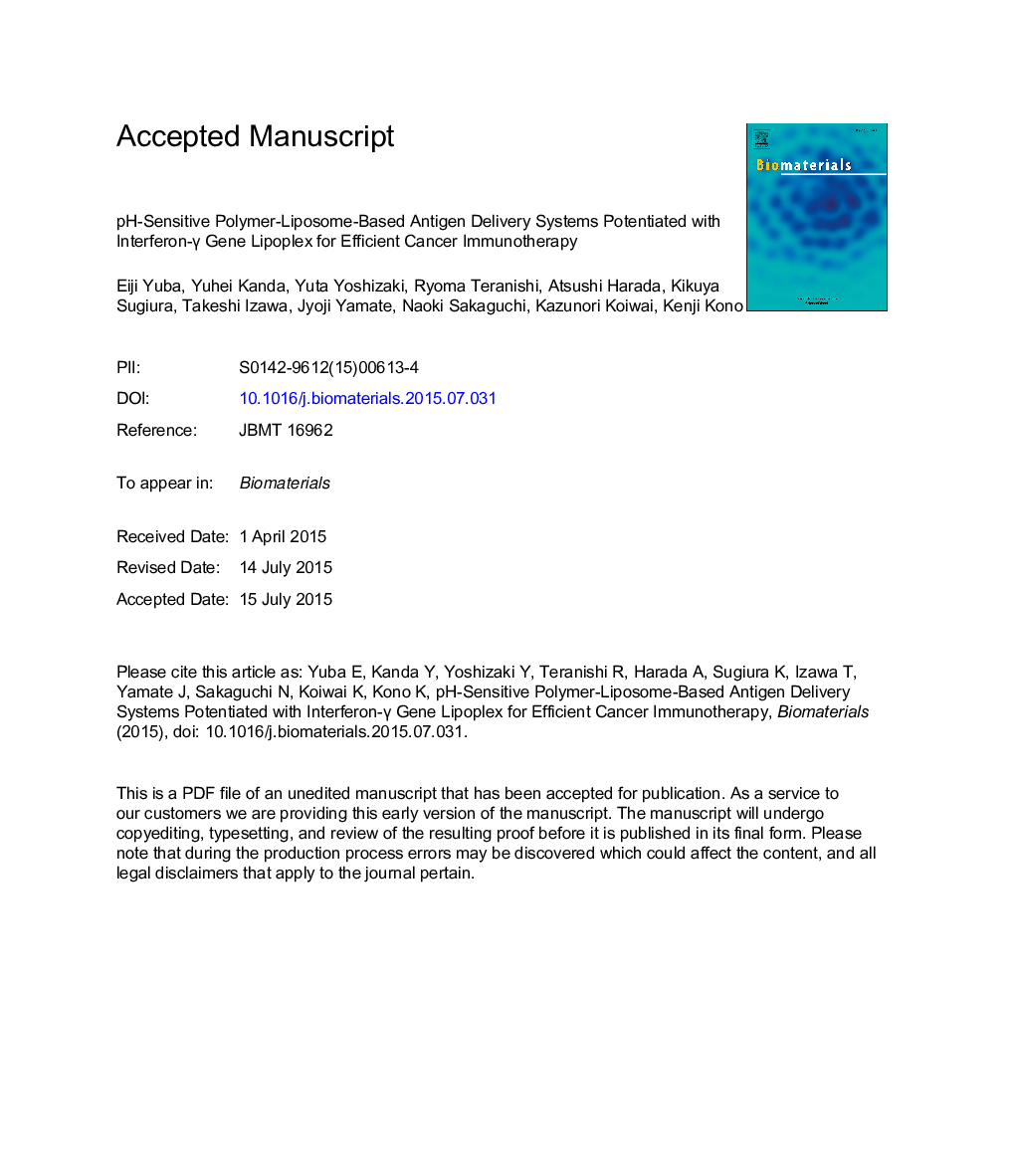| Article ID | Journal | Published Year | Pages | File Type |
|---|---|---|---|---|
| 6485512 | Biomaterials | 2015 | 56 Pages |
Abstract
Potentiation of pH-sensitive liposome-based antigen carriers with IFN-γ gene lipoplexes was attempted to achieve efficient induction of tumor-specific immunity. 3-Methylglutarylated poly(glycidol) (MGluPG)-modified liposomes and cationic liposomes were used, respectively, for the delivery of antigenic protein ovalbumin (OVA) and IFN-γ-encoding plasmid DNA (pDNA). The MGluPG-modified liposomes and the cationic liposome-pDNA complexes (lipoplexes) formed hybrid complexes via electrostatic interactions after their mixing in aqueous solutions. The hybrid complexes co-delivered OVA and IFN-γ-encoding pDNA into DC2.4 cells, a murine dendritic cell line, as was the case of MGluPG-modified liposomes for OVA or the lipoplexes for pDNA. Both the lipoplexes and the hybrid complexes transfected DC2.4 cells and induced IFN-γ protein production, but transfection activities of the hybrid complexes were lower than those of the parent lipoplexes. Subcutaneous administration of hybrid complexes to mice bearing E.G7-OVA tumor reduced tumor volumes, which might result from the induction of OVA-specific cytotoxic T lymphocytes (CTLs). However, the hybrid complex-induced antitumor effect was the same level of the MGluPG-modified liposome-mediated antitumor immunity. In contrast, an extremely strong antitumor immune response was derived when these liposomes and lipoplexes without complexation were injected subcutaneously at the same site of tumor-bearing mice. Immunohistochemical analysis of tumor sections revealed that immunization through the liposome-lipoplex combination promoted the infiltration of CTLs to tumors at an early stage of treatment compared with liposomes, resulting in strong therapeutic effects.
Keywords
Related Topics
Physical Sciences and Engineering
Chemical Engineering
Bioengineering
Authors
Eiji Yuba, Yuhei Kanda, Yuta Yoshizaki, Ryoma Teranishi, Atsushi Harada, Kikuya Sugiura, Takeshi Izawa, Jyoji Yamate, Naoki Sakaguchi, Kazunori Koiwai, Kenji Kono,
